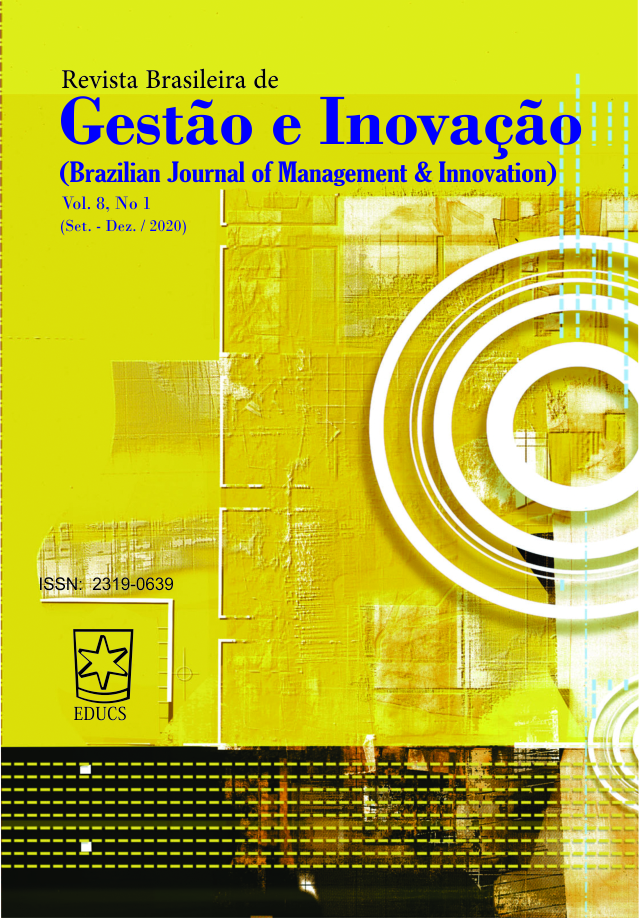TEORIA DO COMPORTAMENTO PLANEJADO E CONTABILIDADE: UM ESTUDO SOBRE A VALIDADE DA TEORIA DIANTE DA OPÇÃO PELA CARREIRA ACADÊMICA CONTÁBIL | PLANNED BEHAVIOR THEORY AND ACCOUNTING: A STUDY ABOUT THE VALIDITY OF THE THEORY REGARDING THE OPTION FOR AN ACCOUNTING ACADEMIC CAREER
Keywords:
Teoria do Comportamento Planejado, TCP, Ambiente Acadêmico Contábil.Abstract
O trabalho teve como objetivo analisar a validade da Teoria do Comportamento Planejado (TCP) no que diz respeito à relação de dependência de seus condicionantes dada a tomada de decisão feita por mestrandos ao optarem pela carreira acadêmica contábil. A amostra remete a estudantes regularmente matriculados em cursos de mestrado stricto sensu em universidades públicas da região Sul do Brasil que receberam formulários online visando mensurar qual ou quais fatores foram considerados relevantes no momento da escolha pela carreira acadêmica em contabilidade. Posteriormente, para a análise das respostas percebidas e verificação das hipóteses de estudo formuladas foi utilizada a técnica multivariada ANACOR. Os resultados auferidos indicam a existência de uma relação de dependência entre os três fatores condicionantes do comportamento humano conforme relatado na TCP, refutando inicialmente as críticas dessa vertente. Esses achados parecem estar de acordo com o trabalho de Ariff et al. (2010) e Bagley, Dalton e Ortegren (2012), que encontraram significância nos três condicionantes da TCP sobre a intenção do comportamento. É importante ressaltar um diferencial desse trabalho no que tange a verificação da relação de interdependência entre os condicionantes, uma vez que não foram encontrados trabalhos anteriores que tenham verificado tal relação.
DOI: 10.18226/23190639.v8n1.05
Tayná Cruz Batista, Universidade Federal do Rio de Janeiro (UFRJ). Brasil.
E-mail: tayna@facc.ufrj.br
Ronan Reis Marçal*, Universidade Federal de Santa Catarina (UFSC). Brasil.
E-mail: ronan.r.marcal@posgrad.ufsc.br
Submetido: Março 2019
Aceito: Novembro 2019
*Contato para Correspondência
Downloads
Published
How to Cite
Issue
Section
License
The author must guarantee that:
- there is full consensus among all the coauthors in approving the final version of the document and its submission for publication.
- the work is original, and when the work and/or words from other people were used, they were properly acknowledged.
Plagiarism in all of its forms constitutes an unethical publication behavior and is unacceptable. Revista Brasileira de Gestão e Inovação has the right to use software or any other method of plagiarism detection.
All manuscripts submitted to RBGI - Revista Brasileira de Gestão e Inovação go through plagiarism and self-plagiarism identification. Plagiarism identified during the evaluation process will result in the filing of the submission. In case plagiarism is identified in a manuscript published in the journal, the Editor-in-Chief will conduct a preliminary investigation and, if necessary, will make a retraction.
This journal, following the recommendations of the Open Source movement, provides full open access to its content. By doing this, the authors keep all of their rights allowing Revista Brasileira de Gestão e Inovação to publish and make its articles available to the whole community.
RBGI - Revista Brasileira de Gestão e Inovação content is licensed under a Creative Commons Attribution 4.0 International License.
Any user has the right to:
- Share - copy, download, print or redistribute the material in any medium or format, linking to RBGI site.
- Adapt - remix, transform and build upon the material for any purpose, even commercially.
According to the following terms:
- Attribution - You must give appropriate credit, provide a link to the license, and indicate if changes were made. You may do so in any reasonable manner, but not in any way that suggests the licensor endorses you or your use.
- No additional restrictions - You may not apply legal terms or technological measures that legally restrict others from doing anything that the license permits.
#RBGI







